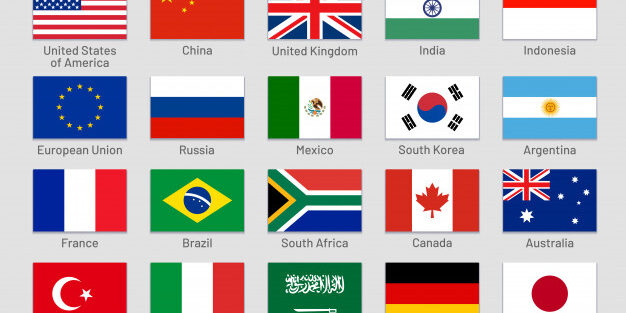HISTORY OF G20
Every day the news includes a report on some crisis occurring somewhere in the world. There are wars, famines, climate issues, and economic crisis. We are going to focus on the last problem, i.e., the economic crisis and its connection with the G20.
Back in the year 1997, the economic crisis threatened many east Asian countries. The value of the currencies fell. Also, businesses went bankrupt, and many people lost their job. People also lost the money they had invested. With time, the economic crisis threatened other countries as well. There was widespread concern worldwide.
So, a crisis meeting was held, and 22 countries attended it. The meeting was in 1999 in the US. The meeting was one of the milestones that resulted in the establishment of the G20 in December 1999.
Another important year for the G20 was 2008. This year, once again, the finance ministers and central bank chairpersons met for discussions. At the same time, a considerable financial crisis threatened the world.
INTRODUCTION TO G20
G stands for group. And 20 stands for the 19 most important industrialized and emerging countries and the EU. The countries are:
- Argentina
- Australia
- Brazil
- Canada
- China
- France
- Germany
- India
- Indonesia
- Italy
- Japan
- Republic of Korea
- Mexico
- Russia
- Saudi Arabia
- South Africa
- Turkey
- The United Kingdom
- The United States of America
- The European Union
The G20 is not an organization. Instead, it is an informal forum. It means they cannot directly adopt laws. However, their opinion carries considerable political weight.
Today, the summits take place once or twice a year. Institutions such as the WHO, along with other national representatives, join heads of governments, their representatives, and various specialist ministers at the table. The final decision on which guests are allowed to attend the meeting and the content of the conference falls to the President of the country organizing the G20 summit.
WORKING OF THE G20
In addition to topics on economics and finance, other aspects are also included in the agenda. Some of them are:
- Climate
- Energy
- Food
- Health
- Social issues
The ongoing aim of the forum is to fight the global crisis and to prevent the global crisis. The international forum has adopted tougher measures to safeguard states and taxpayers from financial charges. Also, the forum has agreed on financial support for poorer countries.
CRITICISMS OF G20
Repeated criticisms have been directed against the G20. Some of them are:
- G20 is an elite club and undemocratic because it does not involve the voices from the world’s other nations.
- All members do not hold themselves to the climate protection measures adopted by the forum.
- The informal forum lacks transparency.
- It has failed to address issues like climate change and inequality.
MAJOR TAKEAWAYS OF THE G20 SUMMIT 2020
- Leaders of G20 nationals held a video conference on 22 November 2020.
- The current chair was Saudi Arabia.
- The leaders discussed ways to tackle the Covid-19 crisis.
- G20 countries decided to provide over $5 trillion into the global economy.
- The forum, along with the WHO, committed to do whatever it takes to overcome the pandemic.
- Donald Trump said the videoconference showed tremendous spirit to get this over with.
- G20 asked the International Monetary Fund and the World Bank Group to support countries in need.
- WHO Director-General Tedros Adhanom Ghebreyesus also addressed the G20. He sought support for ramping up personal protection equipment for health workers.







